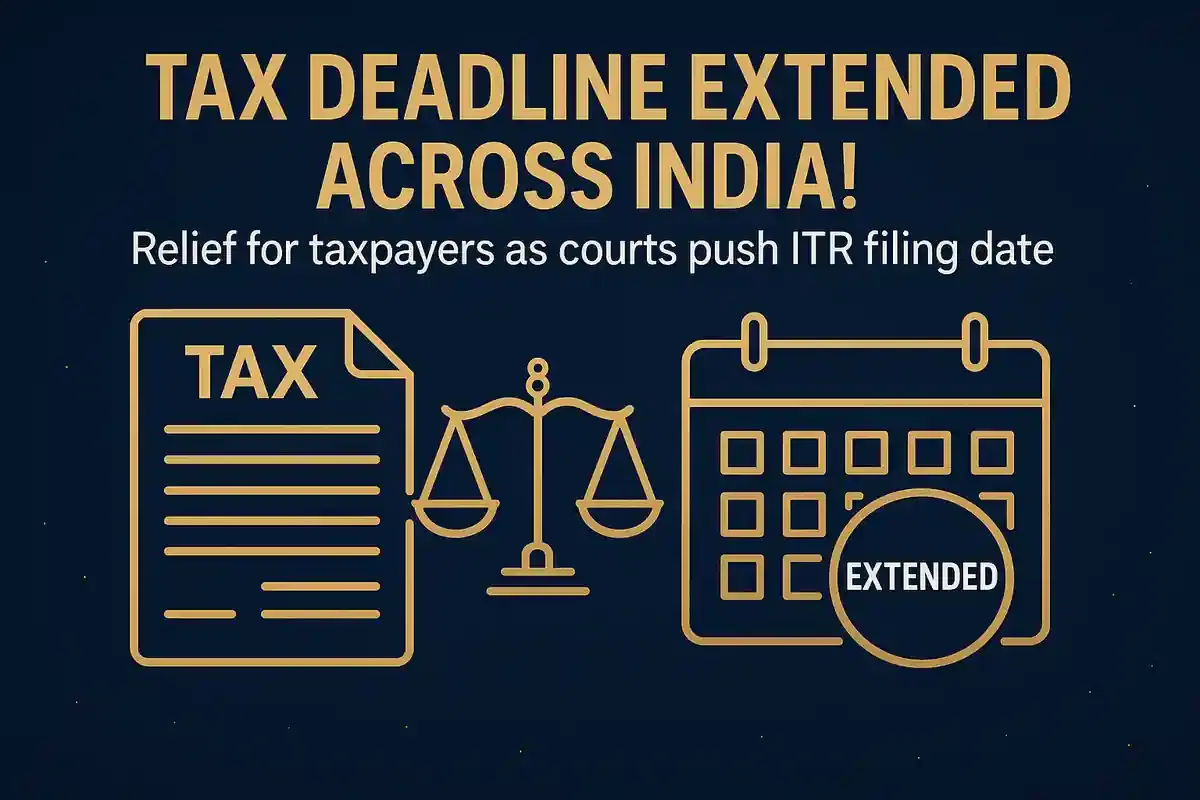High Courts Extend Income Tax Return Deadline for Audit Cases to November 30, 2025
Economy
|
29th October 2025, 1:30 PM

▶
Short Description :
Detailed Coverage :
The Punjab & Haryana High Court and the Himachal Pradesh High Court have issued significant rulings extending the due date for filing Income Tax Returns (ITRs) for taxpayers with audit cases. The new deadline is now November 30, 2025, a shift from the previous October 31, 2025 deadline. These decisions align with a precedent set by the Gujarat High Court earlier this month. The judicial reasoning emphasizes that taxpayers and tax professionals require adequate time, specifically a one-month gap, between the submission of their audit reports and the filing of their final ITRs.
Tax practitioners have welcomed these extensions, seeing them as a relief for millions. However, they are pressing the Central Board of Direct Taxes (CBDT) to issue a formal, pan-India notification swiftly. They warn that continued inaction by the CBDT could lead to contempt of court proceedings, given the consistent rulings from multiple High Courts. The Delhi High Court is also scheduled to hear a similar petition.
Impact This news provides crucial relief to a vast number of taxpayers and chartered accountants by extending compliance deadlines. While it does not directly alter stock prices, it simplifies tax administration for many businesses and individuals, potentially reducing stress and errors in tax filings, which is indirectly positive for the overall economic environment. Rating: 3/10
Headings: * **ITR (Income Tax Return)**: This is a form that all taxpayers must submit annually to the Indian Income Tax Department, detailing their income earned and taxes paid during the financial year. * **Audit Cases**: These refer to taxpayers who are required to have their accounts verified by a chartered accountant, a process known as a 'tax audit'. This is typically mandatory for businesses whose revenue or profit exceeds a certain threshold. * **High Court**: These courts are the principal civil courts of original jurisdiction in each state or union territory of India, ranking below the Supreme Court. They play a vital role in protecting citizens' fundamental rights and resolving legal disputes within their jurisdiction. * **CBDT (Central Board of Direct Taxes)**: This is a statutory authority functioning under the Indian Ministry of Finance. It is responsible for administering direct tax laws, formulating tax policies, and supervising the Income Tax Department. * **Contempt of Court**: This occurs when an individual or authority disregards or disobeys a court's order. Such actions can lead to penalties imposed by the court. * **Writ Petition**: A type of legal action filed in a High Court or the Supreme Court when fundamental rights are violated or when a government authority fails to perform its statutory duty. * **Revenue Counsel**: An advocate who represents the government in legal proceedings related to tax or revenue matters.